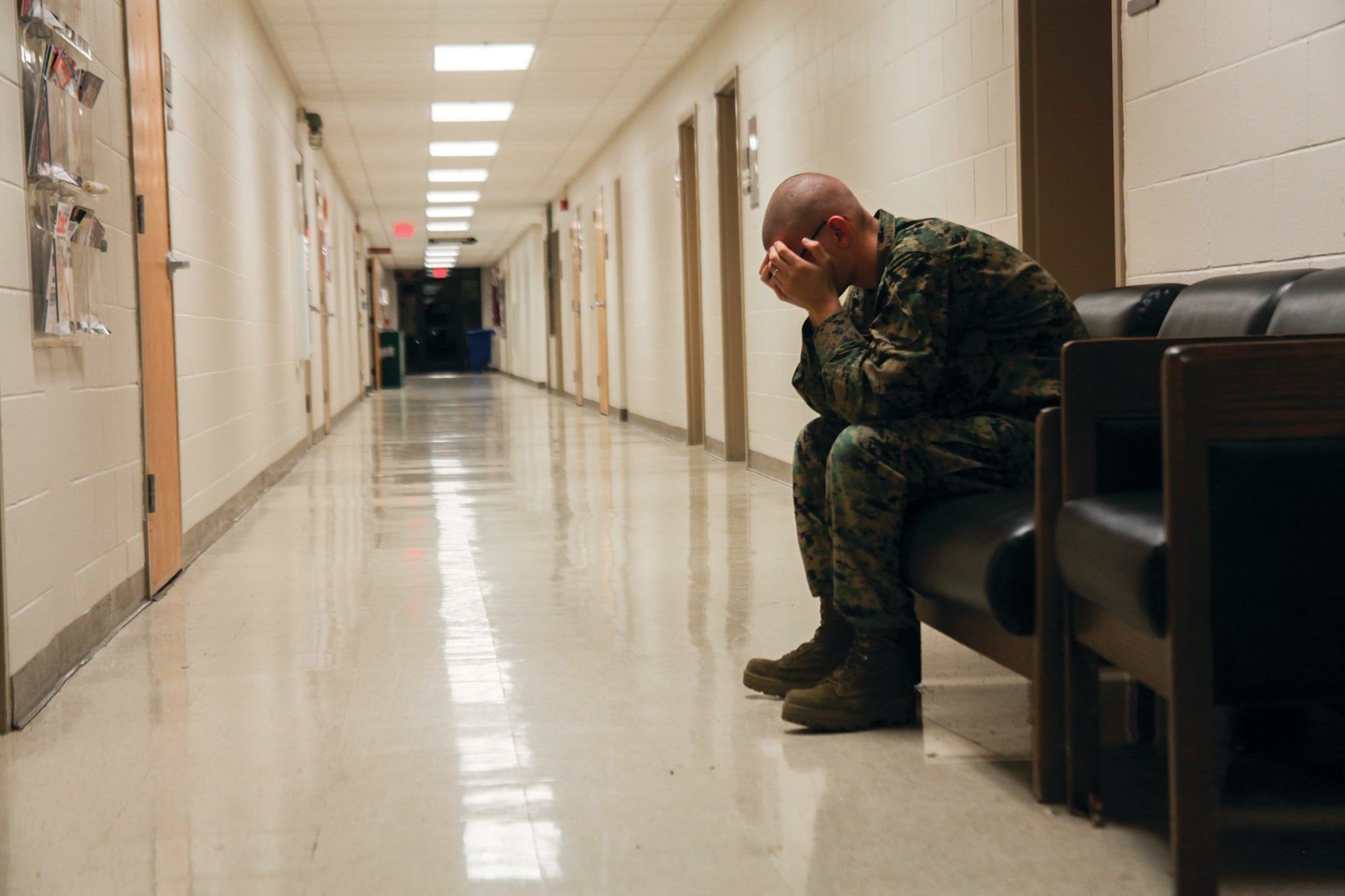Since March, we have seen the adverse impacts of the COVID-19 pandemic on post-9/11 wounded veterans.
For instance, one-third of Wounded Warrior Project® (WWP) warriors have or expect to run out of money due to the pandemic, according to the 2020 WWP Annual Warrior Survey. In addition, 61 percent of WWP warriors reported feeling more disconnected from their family, friends, or community.
The annual survey provided an initial look at the pandemic’s physical, mental, and financial impacts on this group of injured veterans. We wanted to dive deeper, however, to understand the severity of the COVID-19-related burdens warriors are experiencing in relation to the health challenges they’re already managing. Through a partnership with CSX and its Pride in Service initiative — the company’s commitment to honor and serve the nation’s military, veterans, and first responders — WWP was able to more thoroughly explore the negative effects on warriors.
Our new research shows the health crisis is disproportionally impacting WWP warriors with mental health challenges. In fact, the research found those living with post-traumatic stress disorder (PTSD) are more than three times as likely to have mental or physical health-related challenges during the pandemic compared with warriors without mental health challenges. The research also concluded warriors experiencing suicidal ideations are more than twice as likely to have worsening mental or physical health during the pandemic.
Those with moderate to severe depression and feelings of loneliness face a similarly disconcerting outlook. These adverse effects of the pandemic are compounded for warriors who live with multiple mental health challenges.
RELATED

To address these problems, we urge organizations and communities to be proactive with providing veterans mental health resources and connection opportunities. Organizations should actively connect with veterans to make referrals or encourage participation in critical support programs and services. Given the worsening state of the pandemic, mental health resources are vital to helping veterans face the invisible wounds of war while confronting challenges associated with an ever-changing environment.
Mental health resources and connection opportunities promote greater psychological well-being and resilience, which can mitigate the pandemic’s negative effects. WWP is finding its virtual mental health offerings are bridging this gap for many warriors. From mid-March to mid-November, WWP held more than 22,000 telephonic and virtual sessions for emotional support and follow-up on mental health workshops. This represents a 10 percent increase over the previous eight-month period.
Assuring veterans have access to mental health resources and connection opportunities is not only critical for veterans service organizations like WWP but also for organizations with a strong veteran employee base, like CSX.
One in five of CSX’s 20,000 employees is either a veteran or active reservist. CSX is committed to attracting talent from the military community and providing them the support to ease their transition to civilian life and succeed in their careers. This includes offering access to counseling and other resources.
In the next several months, CSX will expand its support by partnering with WWP to provide mental health awareness training to its employees and Pride in Service partners. Through Pride in Service, CSX supports broader military and veteran communities, beyond its own employees, through financial assistance for families and programs aimed to bring communities together, bridge civilian-service divides, and reduce feelings of isolation here on the home front. These trainings and virtual events will empower them to promote mental health in their communities.
The invisible wounds of war are often not diagnosed at their onset and can worsen with time. As our research has shown, access to mental health services is crucial in protecting warriors and other populations who may be experiencing mental health issues against further pandemic-related burden. We also want warriors to feel empowered and supported as they face other unforeseen events. Equipping veterans with vital mental health resources will allow them to face unexpected circumstances with confidence and empower them to live their lives on their terms.
We believe the collaborative approach between WWP and CSX provides a model of how organizations can come together and help support veterans. Together, we can help break down stigmas around mental health and encourage people to ask for help.
Dr. Melanie Mousseau is the vice president of program operations and partnerships at Wounded Warrior Project. Bryan Tucker is the vice president of corporate communications at CSX.
Editor’s note: This is an Op-Ed and as such, the opinions expressed are those of the author. If you would like to respond, or have an editorial of your own you would like to submit, please contact Military Times managing editor Howard Altman, haltman@militarytimes.com.




